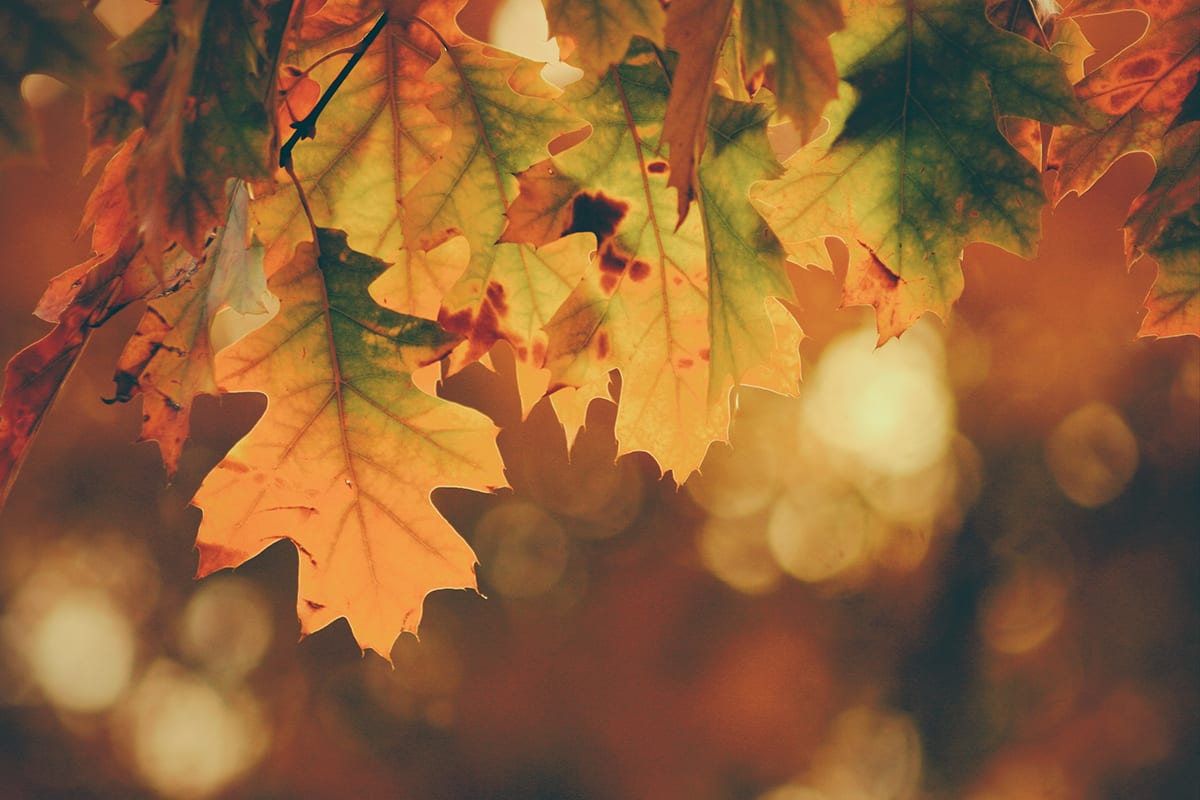
“Every May, my mom helped me plant a garden. She died last fall and I tear up even thinking about shopping for flowers without her.”
“When the weather would warm up, my grandpa made his famous BBQ chicken just about every weekend. Now that he’s gone, even the smell of a cookout makes me sad.”
“My older sister loved the first snowfall of the year and always called me when it happened. Since her death, I’ve avoided thinking about how I will feel when winter comes around.”
Our staff at Woodlawn Cemetery often hears from family, friends, and neighbors in the Bronx who unexpectedly face a new wave of grief as seasons change.
 As summer ends, the long days of sunlight give way to chilly weather and earlier sunsets. So much about fall revolves around family and togetherness, and you may find yourself right back in the early stages of grief – and aren’t quite sure why you’re feeling such overwhelming emotions all over again.
As summer ends, the long days of sunlight give way to chilly weather and earlier sunsets. So much about fall revolves around family and togetherness, and you may find yourself right back in the early stages of grief – and aren’t quite sure why you’re feeling such overwhelming emotions all over again.
With the coming winter, many who are feeling low find it easier to stay inside, avoid loved ones, and skip out on social gatherings. Add to it the colder, shorter, darker days and there’s also a risk of experiencing seasonal affective disorder (SAD). The resulting moodiness, fatigue, and feelings of hopelessness can become even more pronounced after a loss.
Once the weather warms up, feelings of sadness and depression can deepen as those around you are happier, more active, and excited to enjoy all the community has to offer.
This pain only intensifies as each new season brings new memories of the person who has died. Birthdays, anniversaries, holidays. Revisiting these special times can be difficult and may seem like a setback in the grieving process. But here’s what is important to remember: Grief is not a typical emotion, nor is it predictable.
When emotions hit, when you feel blah or numb or antisocial, keep in mind that there is no timetable for grief. Experiencing the death of someone close to you doesn’t create a set of feelings that can be worked through in six months or a year. It’s not about moving on; it’s about adapting over time and dealing with the loss in a way that helps you. This might mean meeting with a counselor or support group, writing in a journal, or turning to those around you who offer encouragement and a listening ear.
Grief changes us – and this is even more complicated as we face the added uncertainty during the COVID-19 crisis. Each season holds added layers of loss, as events are postponed and cancelled, and every family – and every family member – is affected in different ways.
We’ve been helping our Bronx neighbors since 1863, and have numerous blogs that can guide you through steps to help you find answers to many questions about grief and suggestions for your own healing or help with someone else’s healing.
Losing a loved one changes life forever. But it is possible to grieve in a healthy way. If you ever need a helping hand or listening ear, please remember we’re always here for you.
